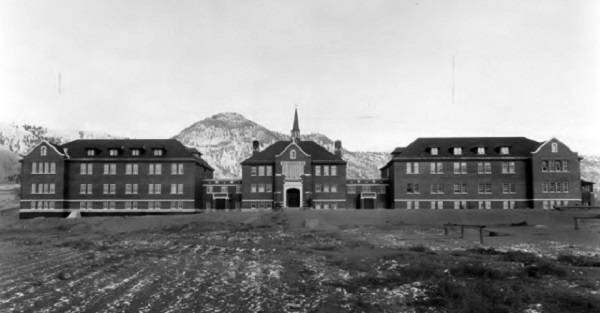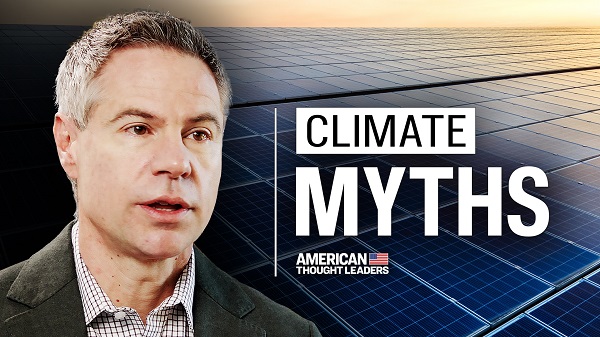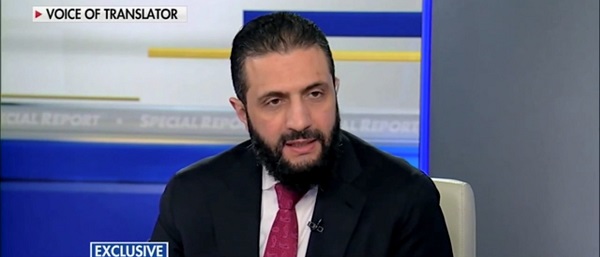Frontier Centre for Public Policy
Trust but verify: Why COVID-19 And Kamloops Claims Demand Scientific Scrutiny

From the Frontier Centre for Public Policy
Senior Fellow Rodney Clifton calls for renewed scientific scrutiny of two major Canadian narratives: COVID-19 policies and the Kamloops residential school claims. He argues that both bypassed rigorous, evidence-based evaluation, favouring politicized consensus. Critics of pandemic measures, like Dr. Jay Bhattacharya, were wrongly dismissed despite valid concerns. Similarly, the unverified mass grave claims in Kamloops were accepted without forensic proof. Clifton urges a return to the scientific principle of “trust but verify” to safeguard truth, public policy, and democracy.
COVID-19 and Kamloops claims dodged scrutiny – but the truth is catching up
Do we know the best way to decide if specific empirical claims are true?
Of course we do. The best way is by using the procedures of science.
Scientists critically examine the arguments and evidence in research studies to find weaknesses and fallacies. If there are no weaknesses or fallacies, the evidence enters the realm of science. But if there are weaknesses, the research has low or zero credibility, and the evidence does not become a building block of science.
In a historical context, seemingly good evidence may not remain as science because claims are continually evaluated by researchers. This scientific process is not failsafe, but it is far better than other procedures for determining the truth of empirical claims.
This powerful principle is often called “trust but verify,” and it is the idea behind the replication of scientific results.
Today, many such truth claims demand critical examination. At least two come readily to mind.
The first is the claim that the COVID-19 procedures and vaccines were safe and effective.
It is now abundantly clear that the procedures used during the COVID-19 pandemic bypassed time tested scientific protocols. Instead of open scientific debate and rigorous testing, government appointed “scientists” endorsed government-approved narratives. Canadians were told to social distance, wear masks and, most importantly, get vaccinated—often without transparent discussion of the evidence or risks.
Those who questioned the procedures, vaccines or official explanations were dismissed as “deniers” and, in some cases, ridiculed. Perhaps the most notable example is Dr. Jay Bhattacharya, the Stanford epidemiologist and economist who co-authored the Great Barrington Declaration. Despite being vilified during the pandemic, Dr. Bhattacharya is now the head of the U.S. National Institute of Health.
Five years after the pandemic began, it is clear that Dr. Bhattacharya—and many other so-called deniers—were raising legitimate concerns. Contrary to the portrayal of these scientists as conspiracy theorists or extremists, they were doing exactly what good scientists should do: trusting but verifying empirical claims. Their skepticism was warranted, particularly regarding both the severity of the virus and the safety and effectiveness of the vaccines.
The second claim concerns the allegation that Indigenous children died or were murdered and buried in unmarked graves at the Kamloops Residential School.
In 2021, the Kamloops Indigenous Band claimed that 215 children’s bodies had been discovered in the schoolyard. The legacy media swiftly labelled anyone who questioned the claim as a “denier.” Despite millions of dollars allocated for excavations, no bodies have been exhumed. Meanwhile, other bands have made similar claims, likely encouraged by federal government incentives tied to funding.
To date, this claim has not faced normal scientific scrutiny. The debate remains lopsided, with one side citing the memories of unnamed elders—referred to as “knowledge-keepers”—while the other side calls for forensic evidence before accepting the claim.
The allegation of mass graves was not only embraced by the media but also by Parliament. Members of the House of Commons passed a motion by NDP MP Leah Gazan declaring that Indigenous children were subjected to genocide in residential schools. Disturbingly, this motion passed without any demand for forensic or corroborating evidence.
Truth claims must always be open to scrutiny. Those who challenge prevailing narratives should not be disparaged but rather respected, even if they are later proven wrong, because they are upholding the essential principle of science. It is time to reaffirm the vital importance of verifying evidence to resolve empirical questions.
We still need a robust debate about COVID-19 procedures, the virus itself, the vaccines and the claims of mass graves at residential schools. More broadly, we need open, evidence-based debates on many pressing empirical claims. Preserving our democracy and creating sound public policy depend on it because verifiable evidence is the cornerstone of decision-making that serves all Canadians.
Rodney A. Clifton is a professor emeritus at the University of Manitoba and a senior fellow at the Frontier Centre for Public Policy. Along with Mark DeWolf, he is the editor of From Truth Comes Reconciliation: An Assessment of the Truth and Reconciliation Commission Report, which can be ordered from Amazon.ca or the Frontier Centre for Public Policy.
Frontier Centre for Public Policy
Richmond Mayor Warns Property Owners That The Cowichan Case Puts Their Titles At Risk

From the Frontier Centre for Public Policy
“For those whose property is in the area outlined in black, the court has declared Aboriginal title to your property which may compromise the status and validity of your ownership — this was mandated without any prior notice to the landowners,” said the letter to Richmond residents.
These are the words of the mayor of Richmond, BC, to Richmond property owners. In a Canadian first — and what might be the first of many such warnings to frightened property owners — the mayor is telling them that the titles to homes and businesses that they had purchased by dint of hard work and faithfully making mortgage payments over decades might be invalidated because an indigenous claimant, relying in part on ancient hearsay evidence, managed to convince a judge that equally ancient ancestors had once built crude structures and fished there.
The warning comes because of the Cowichan case.
In an alarming decision, a judge granted 2,000 Cowichan claimants Aboriginal title (AT) to part of the City of Richmond — worth an estimated $100 billion, or about $12.5 million per claimant. The decision is being appealed. However, it is based on the equally alarming case of Delgamuukw and the line of cases that followed it. Consequently, unless the Supreme Court of Canada (SCC) is prepared to reverse that decision, Canadian property owners can never again enjoy the certainty of property ownership that was bequeathed to us before Canada even became a nation. At best, Canadian property owners can only hope that their “junior” property rights will not come under attack by someone claiming a “senior” constitutionally protected AT, based on something that might or might not have happened before Canada even became a nation.
Because the 1997 Delgamuukw decision changed property rights forever in Canada. Senior Ontario lawyer, Peter Best, describes what the SCC did in that case as a “revolution.”
Another way to describe what the unelected SCC Justices chose to do in 1997 is that they chose to sacrifice the certainty of Canadian property rights on the altar of “reconciliation.” From that point on, a Canadian property owner could no longer be certain that their title to property was permanent.
Henceforth, if an indigenous claimant, relying on ancient hearsay evidence no less, could satisfy a judge that their ancestors had the exclusive use of hunting or fishing lands in the distant past, an AT could be placed upon the title of a property owner today. In short, the property owner would be told that their “title” was not the permanent ownership they thought it was.
Few Canadians noticed this astounding decision, in large part because it concerned lands in a remote area of BC. But when the Delgamuukw-based Cowichan decision, which involved city land, was announced, property owners certainly took notice. They suddenly woke up to find that their property rights could be taken from them at the stroke of a judge’s pen.
They aren’t imagining the threat. In fact, they are alarmed to find themselves alone, fighting against a provincial government, a federal government, and the courts — all of which appear to be willing to sacrifice Canadians’ property rights to the apparent requirements of “reconciliation.”
Here’s an example. These Pender Harbour residents are not just alarmed. They are scared.
This brief article discusses the threat and what went wrong.
Those who live in dictatorships and own property can never be certain that homes and businesses they worked hard to buy won’t be suddenly taken from them. That’s exactly what happened in Cuba in 1959, when Fidel Castro seized power from Fulgencio Batista. I was reminded of this the other day when I rewatched Francis Ford Coppola’s masterful movie, Godfather II, and saw that revolution depicted on the screen.
Pandemonium reigned as most of Cuba’s once vibrant middle class was forced out of their own country. Their houses and businesses were simply confiscated by the Castro “revolutionaries.” Families who had acquired property by dint of generations of hard work suddenly found themselves with nothing. While many of the dispossessed rebuilt good lives in Miami and elsewhere, they will never regain their haciendas and businesses back home. The sad mess that is today’s Cuba is what a country, stripped of its middle class and property rights, looks like. That’s because the certainty of property rights is the backbone of any successful nation.
But none of what happened in Cuba could happen in a liberal democracy, like Canada, could it? We Canadians have always been sure that if we do all of the work and saving necessary to earn the down payment needed to buy a house; work hard to meet our mortgage, property taxes, and other fees; and spend the money necessary to maintain our property over the years — we will own “our” property forever. We can sell it, pass it on to our children, or live there until we die. Property ownership is forever in a country like Canada. No one — not even the government or the courts — can take it away from us. Right?
At least that’s what we thought. If you are one of those Canadians who still think that “ownership” means what you think it means, you need to start paying attention to what is playing out right now in British Columbia. Because the Cowichan case — directly based on Delgumuukw — decides otherwise. The trial judge concluded that property rights can indeed be taken away from a rightful owner. A court can do that — on a claim based on hearsay evidence, no less. And not just hearsay evidence. Hearsay evidence that is seventh generation hearsay. In one fell swoop, Canada became the first (and only) common law nation where a court can take away your title to your property based on a claim by someone in 2025 that a claimed ancestor of theirs told someone else something in 1846. But only if all the “someones” are indigenous.
Cowichan claimants convinced a judge that what some claimed ancient ancestor told another ancient ancestor in a blueberry patch, and all the way up to the present, was reliable enough to slap a constitutionally senior AT on top of the inferior “junior title” that everyone who had lawfully acquired the property from the previous owner thought they owned. So, if you own property in Richmond, BC, you are not being paranoid if you are alarmed by the decision. The mayor is quite right to warn scared residents that their titles are under threat.
And if you are a property owner — or rather thought you were a property owner — anywhere in what were formerly the Queen Charlotte Islands, but has now suddenly become the new nation, or tribal nation, of Haida Gwaii, you might also want to know that an indigenous claimant and their lawyers can meet with one judge in private — with absolutely no notice to you — and have their newly acquired AT — courtesy of the courts and the Eby government — made into a constitutional right that is now “senior” to your “junior” unprotected right that you thought was your inviolable title to your property. A title that might have taken a lifetime of work to acquire.
So, if you are a BC resident, you should be alarmed. And what starts in BC doesn’t necessarily stay in BC. It is assumed by many that AT will have no effect in the areas of Canada covered by treaties. However, the signing of those treaties only started in 1870. What about tribes, such as the Assiniboine, who had been displaced by treaty signing tribes, such as the Ojibway, before 1870? This and other creative AT claims will undoubtedly be argued before judges as receptive to radical indigenous claims as the Cowichan trial judge.
This is obviously a simplified description of a very complicated topic. Volumes have been written by lawyers and others about the Delgamuukw case where AT and the line of cases built on it originated. Brilliant lawyers, like Dwight Newman, Geoffrey Moyse, Barry Kirkham, and Peter Best, as well as many writers, have already written reams about the Cowichan case.
But don’t be fooled by politicians or Indian chiefs telling you that they are not claiming private property at this time.
Because if their claims are accepted, that means the government had a defective title from the outset, that means your title is just as defective. They can go after your title any time they care to. As mentioned, the City of Richmond is warning residents that the Cowichan case puts their ownership in doubt. They are not being paranoid — they are letting residents know the truth — the courts are playing fast and loose with property rights in their single-minded pursuit of “reconciliation.”
Richmond and Haida Gwaii are most likely just the beginning of what is going to happen throughout BC, and eventually all of Canada. BC has hundreds of Indian bands that all want variations of what has been awarded to the Cowichan band in the Cowichan case, and to the Haida, by the double-teaming of the Eby government and our courts. This appears to be “Land back” at work. The Eby government and BC courts now appear to be actively working together — engineering “constitutional” declarations privately, for example — in the dismantling of rights to private property to fit their vision of reconciliation. Here is an article on the subject by the David Suzuki Foundation. To them, it makes perfect sense that huge parts of Canada should simply be “handed back” to claimants, simply because they are indigenous. The Eby government, with the courts’ cooperation, appears to be doing exactly that.
As mentioned, it all began with the Delgamuukw case in 1997 — decided by a SC determined to put “reconciliation” ahead of every other consideration. That is the case that decided — against all logic, common sense, and case law that had been built up for a thousand years — that ancient hearsay evidence can be reliable enough to remove title from a property owner and give it to an indigenous claimant. And that indigenous hearsay evidence is somehow reliable, while all other hearsay is not.
To quote senior BC lawyer, Barry Kirkham:
“In the entire history of the common law first hand hearsay evidence is deemed inadmissible because hearsay is unreliable. Delgamuukw held that in support of a claim for Aboriginal title, the courts must allow Indian witnesses to give seventh generation hearsay evidence to establish facts as to land they occupied in 1846. There is no basis in law, logic, or justice to justify this astounding claim, and there is no reason why hearsay evidence from Indians should be an exception to a rule that governs every other litigant. The SC justified this singular exception to the rule against hearsay evidence by reasoning, “There is no other means by which the Indians can prove their case.” A clear instance of a court inventing a rule to produce a particular result, which is the exact opposite of what a court should be doing and is doing in virtually all other cases.”
So, how can seventh generation indigenous hearsay be reliable when even first generation non-indigenous hearsay is considered inadmissible because it is unreliable?
The answer is clear: It can’t be.
To Kirkham again:
“The Indians had no written language and created no documents or records and had no formal education system. How can hearsay evidence from such a system be so much more reliable than non-Indian hearsay, which is inadmissible, despite facts being recorded in documents and taught through a highly developed educational system, where students are a captive audience for several hours a day for many years.”
The truth is that indigenous oral histories are no more or less reliable than the oral history of any other pre-literate people. There might have been a Moses, who led his people from ancient Egypt. Perhaps there was something that happened at the Red Sea that helped them escape. But any judge who stripped a property owner of their titles in 2025, based on their belief that Moses parted the Red Sea that day, would be considered quite mad. Similarly, anyone who believes that every detail of a story supposedly told in a blueberry patch long before Canada even became a country can be accurately recounted by a self-interested claimant today many generations later is deluded.
Proof of what I am saying can be found in the Cowichan case itself. The Cowichan claimants recited their oral history in court, but so did the two opposing tribes, the Musqueam and Tsawwassen. Not surprisingly, all three oral histories differed. All three favoured the groups claiming them to be true. Of course, they did. It was “their” oral history. There is simply no such thing as an oral history, or fable, that doesn’t favour the group that believes it.
The Cowichan trial judge made the arbitrary decision that the Cowichan oral history was accurate, and the two other conflicting indigenous oral histories were not accurate. The correct decision was to find that none of the oral histories were reliable enough to decide something as precise as title.
That’s because oral histories — including indigenous oral histories — are inherently unreliable. They are just stories that have been told and retold — and subtly changed with each retelling. The fact that they are told by indigenous people is neither here nor there.
In both Delgamuukw and Cowichan, we see judges trying to rectify what they see as historical errors made by our forefathers. While these instincts might be well-intentioned, the fact is that remaking Canada is not the courts’ job. Elected representatives and/or constitutional discussions might remedy these perceived injustices, but playing fast and loose with both the clear rules of evidence and what is supposed to be the certainty of property rights are clear examples of judicial overreach.
This problem of judicial overreach is made exponentially worse by the fact that some of the most expensive law firms in the country are actively working on these AT and “duty to consult” claims all across the country. Perversely, the enormous fees come from the very property owners — the taxpayers — targeted by these increasingly creative legal claims.
Many of the very lawyers doing this work eventually become judges hearing those claims. This unholy alliance of chiefs, lawyers, and activist judges is rapidly depleting Canada’s embattled treasury and destabilizing the country. All this is made worse by crusading politicians, like former Prime Minister Justin Trudeau and Premier David Eby.
Attempting to appease the unappeasable 1-2% of the Canadian population who live on Indian reserves by impoverishing and stripping property from the productive 98% in the name of “reconciliation” is a fool’s errand. Decades of enormous public expenditure and “reconciliation” have certainly made many people rich but have done nothing to move the dependent indigenous underclass up the ladder.
There are many other reasons as well why the Delgamuukw and Cowichan are wrongly decided, including the obvious fact that the concept of “title” was foreign to a warrior culture, where stronger tribes had displaced weaker tribes for thousands of years. But the decision to use seventh generation hearsay, only because it comes from indigenous claimants, is the fundamental flaw that must be corrected. The SCC has put property rights in peril and must restore the sanctity of property rights in Canada. It must fix the mess it has created.
The SCC in Delgamuukw set off the multiple claims for AT all over BC and now in other parts of Canada. It is largely responsible for starting what looks like the carving up of that province into racial enclaves, beginning with Haida Gwaii. It incentivized Indians to think of themselves first as members of their “First Nation” and only second as Canadians. In their pursuit of reconciliation, the SCC inadvertently promoted indigenous separatism — the exact opposite of what our highest court should do. And now it is putting in peril a system of property rights that originated in 1066. It would be hyperbolic to say that the justices initiated the unravelling of Canada, but a Canada without certainty of title is not a Canada worth saving. Quebec and Alberta sovereignists have taken note.
The tragedy is that none of this was supposed to happen. In 1982, when constitutional talks were underway, our senior premiers campaigned to have property rights constitutionally protected. That didn’t happen because of the intervention of NDP leaders, like Ed Broadbent, who insisted for their own ideological reasons that Section 35 (which recognizes existing Aboriginal and treaty rights) must be included, but property rights must remain out of the document.
Because originally there was no such thing as Section 35 in the original draft of what the premiers were asked to sign. It was rather suddenly inserted into the mix by some of the same clever people who managed to nix constitutionally protecting property rights.
But even then, the senior premiers, such as Alberta’s Peter Lougheed and Manitoba’s Sterling Lyon, refused to sign — fearing exactly the type of judicial activism that gave rise to Delgamuukw and Cowichan. Only when they were assured by Trudeau and Chretien personally that if the word “existing” was placed before “Aboriginal rights” future Supreme Courts would not even think of expanding aboriginal rights as they existed in 1982 did they sign.
But those senior premiers came to regret what they had done. The assurances given by Trudeau and Chretien turned out to be worthless. They had been snookered. In Delgamuukw, the SCC blatantly disregarded the clear intent of the senior premiers and invented brand new law — AT — by declaring that ancient hearsay evidence could be used by indigenous claimants to establish title to property.
But those senior premiers, like the Fathers of Confederation before them, would have been positively horrified to see what an activist SCC and feckless politicians, like Eby, are doing to the country as a whole. Carving up the country into racial enclaves, like Haida Gwaii, encouraging Indians to think of themselves as members of a tribe, instead of as Canadians, is exactly what Canada was not supposed to be. Our forefathers envisioned a Canada rid of tribalism, where everyone was equal in law, not the “patchwork of tiny Bantustans” — maybe better called UNDRIPia — that is emerging today.
It will be years before the SCC will rule on the Cowichan appeal, and hopefully do a major rethink of what their predecessors launched in 1997 with Delgamuukw. In the meantime, the uncertainty that the courts have created with AT (and their equally damaging creation — “duty to consult”) will cost Canadians dearly. The Canada that was known will continue to unravel.
But Canadians who have worked hard to buy their homes and businesses will not sit idly by while their titles are taken from them. The SCC must reverse what Peter Best calls their “revolution” or they will foment a revolution of a different kind.
Brian Giesbrecht is a retired judge and a senior fellow at the Frontier Centre for Public Policy.
armed forces
What A Second World War Aircraft Taught Me About Remembrance Day

From the Frontier Centre for Public Policy
Sitting inside a B-25 showed me why Remembrance Day isn’t something we can take lightly
Here I was, sitting in the rear gun turret of our Mitchell B-25 bomber, with all my senses on guard and my head on a swivel. The day was clear, the sky could not be bluer, and the danger of enemy fighters coming at us with the sun at their back was almost a certainty.
Luckily, we had just finished our bombing run and were on our way back to base. Our experienced pilot, Major David Rohrer, co-pilot Liam Pearson, and flight engineer Jessica Side had managed to get us to the target unscathed, and we now only had to cross the water to make it home.
Suddenly, Dave had to take evasive action, jerking the plane up and to the right in an almost barrel roll. Cool as cucumbers, the rest of the crew stayed silent as they hung on while I continued to marvel at the incredible manoeuvrability of the B-25.
With 18 machine guns and a full bomb load, the B-25 was a true workhorse. Built in 1945 in Missouri, it showed just how multi-purpose the aircraft could be.
All of this was taking place in Canada last July in the country’s only airworthy B-25 Mitchell, flown out of the Canadian Warplane Heritage Museum in Hamilton, Ontario. The pilot was the museum’s CEO and the crew were volunteers. The target was Niagara Falls, then downtown Toronto (where we flew virtually at the same height as the CN Tower) and the body of water was Lake Ontario..
The experience showed the aircraft’s capabilities, but more importantly, it revealed the challenges faced by Canadian and Allied crews in the Second World War. They worked in noisy, cramped spaces that were too hot in summer and too cold in winter; faced constant danger from enemy aircraft and ground-based flak; dodged fighters and often returned with planes full of holes; flew mission after mission with little rest; and lived with the burden of seeing friends shot down or wounded.
This is what our forefathers went through. This is why we still remember and why we need to continue to honour the generations that came before and who fought for Canada and for our values. The Royal Canadian Air Force was born in 1924, 101 years ago. Its members fought gallantly alongside the Royal Air Force (RAF) and United States Army Air Forces, and many Canadians also flew in RAF and other Commonwealth units.
We owe them a debt that cannot be repaid. All we can do is make sure future generations will remember them, honour them, and stand ready to take their place in the next conflict.
Freedom is not free. It is paid for by the blood of men and women warriors prepared to pick up the torch. Warriors who have no cause except that of freedom, equality, and the protection of all.
As U.S. Army general Douglas MacArthur, who led Allied forces in the Pacific during the Second World War, said, “The soldier above all others prays for peace, for it is the soldier who must suffer and bear the deepest wounds and scars of war.”
This Remembrance Day, and at other times, let us remember and thank those who suffered wounds and scars, but let us also rededicate ourselves to follow their brave example.
Michel Maisonneuve is a retired lieutenant-general who served Canada for 45 years. He is a senior fellow at the Frontier Centre for Public Policy and author of In Defence of Canada: Reflections of a Patriot (2024).
-

 Crime2 days ago
Crime2 days agoCBSA Bust Uncovers Mexican Cartel Network in Montreal High-Rise, Moving Hundreds Across Canada-U.S. Border
-

 Environment2 days ago
Environment2 days agoThe Myths We’re Told About Climate Change | Michael Shellenberger
-

 MAiD1 day ago
MAiD1 day agoQuebec has the highest euthanasia rate in the world at 7.4% of total deaths
-

 Alberta15 hours ago
Alberta15 hours agoHow economic corridors could shape a stronger Canadian future
-

 Alberta21 hours ago
Alberta21 hours agoWhen Teachers Say Your Child Has Nowhere Else to Go
-

 Daily Caller2 days ago
Daily Caller2 days agoEx-Terrorist Leader Goes On Fox News, Gives Wild Answer About 9/11
-

 Daily Caller23 hours ago
Daily Caller23 hours agoProtesters Storm Elite Climate Summit In Chaotic Scene
-

 armed forces2 days ago
armed forces2 days agoWhat A Second World War Aircraft Taught Me About Remembrance Day




